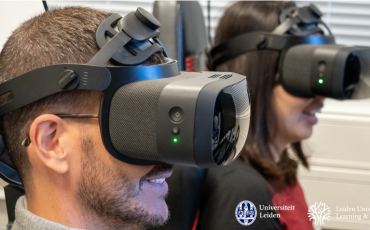John Walker
Young professional from Montana, USA. I currently work on projects for… Meer over John Walker
“Consider public values in what you do!” It’s something that is easier said than done. You may have come across this challenge before, or wanted to try to take it on yourself. Here’s something else to consider, how do we even start the conversation about public values? We had a similar question in the EdTech Work group at the Acceleration Plan. With some help, we devised a solution to get you and your team started.

The EdTech Cycle found within the Technological Impact Cycle (or TICT) facilitates and helps you navigate the big questions that public values can raise. TICT is a free tool by Fontys University of Applied Sciences that helps teams estimate the impact of (new) technologies in their institutions through raising relevant questions. The Acceleration Plan and the TICT Team plan to produce a new version of TICT that focuses on public values with educational technologies. It’s available to everyone for free here!
In order to acknowledge the plurality of beliefs, ideas, and concepts found within discussions about public values in education, a report chose social imaginaries as a method. This social imaginary recognizes not only the complexity of numerous perspectives on any one value, but also the need for continuing the conversation as values change over time and with new technologies.

Where did these questions all come from? Envisioning and actualising the ways in which technologies impact educational practices always requires experimenting and re-imagining what we do every day in our educational institutions. The report, Actualising Questions For EdTech Impact, helped do just this with a combination of responsible technology design and a social imaginary. From these approaches, the report considers a situation where ICT Coaches in the near future would need to take into account public values as a necessary concern for implementing new EdTech tools in their institution. With this perspective in mind, questions were generated from the conversations and ideas that these ICTO Coaches might have had.
From the social imaginary in section 2, it was important that to consider the questions that may have been raised when such debates were being had over an EdTech tool like the example, Pandora. In this case, the focus was on components or core values that build on the public value of Humanity. With the help of the TICT team, our EdTech team was also able to create questions for a variety of more public values in education such as those found in Justice and Autonomy found in the Values Compass.

“Consider public values in what you do!” → “We did!” With this work we now need to build more ‘cycles’ or experiences of teams answering these questions in new and unique ways on the TICT tool. By building these public cycles teams will gradually gather better ideas on what kind of conversations both EdTech and educational teams are having when considering new tools in their institutions or tool designs. Considering these values may not be easy, but as technologies continue to shape education, their risks, and opportunities should serve as reflections on how we want to shape future learners and inevitably, future citizens.
//
Image by unsplash
Young professional from Montana, USA. I currently work on projects for… Meer over John Walker



0 Praat mee